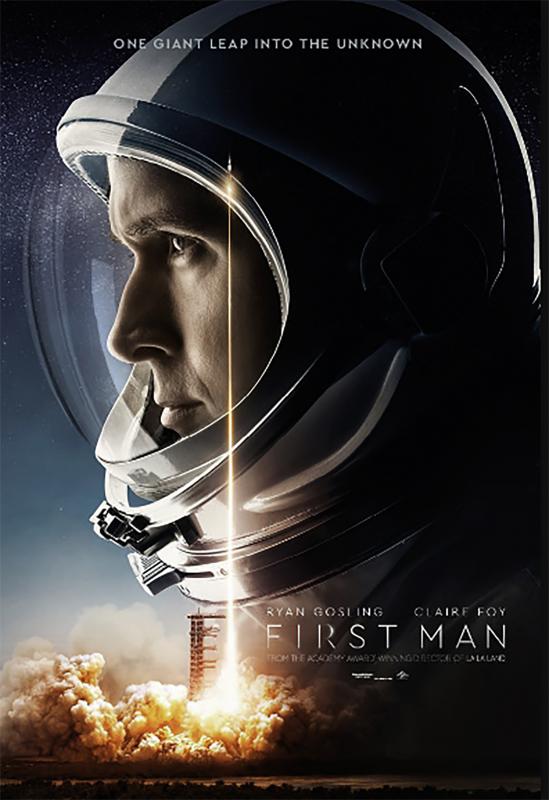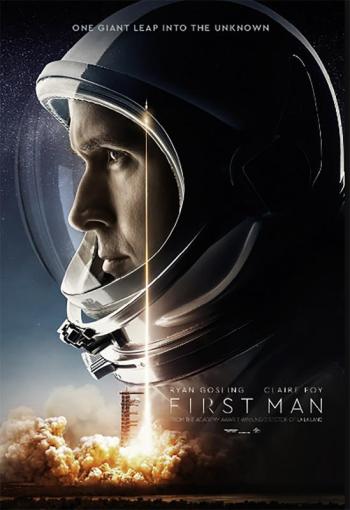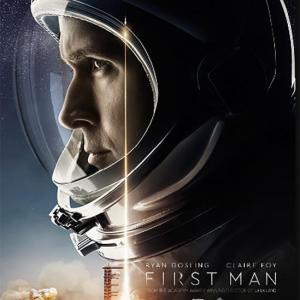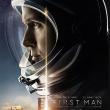The power of storytelling, distilled through Neil Armstrong
On a much-needed — and richly deserved, I’d add — recent date night, my wife and I took in the movie “First Man,” about Neil Armstrong.
I find, days later, that I cannot think about it without also thinking about another movie, “Apollo 13.” I should say, at the outset, that the latter is perhaps my favorite movie ever, and certainly the one I return to most frequently. I should say this because, by the end of all this, it may sound like I don’t regard “Apollo 13” highly at all. Quite the opposite, in fact.
And yet ...
“First Man” reminded me why the essence of humanity is best distilled by art and artists — by actors and painters and poets and novelists. Where “Apollo 13” is high-definition and heroic and delivered in the all-too-familiar blockbuster packaging, “First Man” is shadow and light, life in small movements, pain and a little bit of pleasure and then more pain. The storytellers of “Apollo 13” deliver the big picture. The storytellers of “First Man” offer impressionistic brushstrokes that reveal a bigger picture, but the viewer has to work for it. The direct, in-your-face moments of “First Man” are such anomalies that they forced me upright in my seat, jarred to attention. That there are so few of them is a credit to the cast and director, and a challenge to those of us who take a seat and attempt to absorb the film.
“Apollo 13” tells us that there is greatness in the collective. That if we put our heads together and noodle out a problem — any problem — we can find a workable solution. It’s a celebration of cerebral acuity and common purpose. As Jim Lovell (Tom Hanks) says of the moon landing, “It’s not a miracle. We just decided to go.”
“First Man” scratches at what’s inside of us — the how and why of being shaped by our experiences, our setbacks, our ability to grind it out, and how we collide with each other in the doing. Mine is just one interpretation, but I came away from it marveling at how Armstrong could hold his pain, could love his wife and kids, and could communicate it only in the barest of ways. There’s a moment, late in the film, when Armstrong (Ryan Gosling) has to answer to his kids about the likelihood of his returning from the moon. If you see the film, pay particular attention to the dynamics of that scene. It’s deeply moving, and deeply revealing. The movie is about the greatness of one man, but “greatness” is such a poor noun in this case. We made Neil Armstrong an American hero because that’s what the moment and the narrative demanded. I’d like to think that his tendency to stay out of the limelight, to speak less and to do more, was his way of holding onto himself when others could have redefined him for their own purposes.
On the drive home, Elisa and I talked about the movie. It was harrowing and unsettling, but also oddly validating. The music was note-perfect. I wanted to cling tightly to what I’d seen.
And, yes, I thought of “Apollo 13.” I thought of my first viewing of that film, of how my spirits soared when the rescue was complete, of how I cried on cue, of how I felt proud of what members of my own species had achieved.
I felt none of that with “First Man.” What I felt was deeper, harder to describe, bigger than awe, smaller than joy. A friend who saw it said, “I’m not sure what I just watched.” I felt kinship with that. It was a literary experience on film. I’ll think about it for a long time.
I’m just not sure I’ll ever want to see it again.
Event Date
Address
United States





























